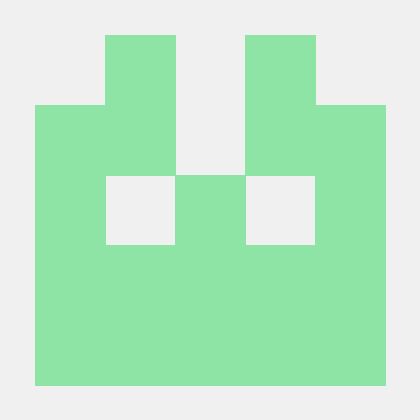zf-kbot/photomaker
Run zf-kbot/photomaker with an API
Use one of our client libraries to get started quickly. Clicking on a library will take you to the Playground tab where you can tweak different inputs, see the results, and copy the corresponding code to use in your own project.
Input schema
The fields you can use to run this model with an API. If you don't give a value for a field its default value will be used.
| Field | Type | Default value | Description |
|---|---|---|---|
| input_image |
string
|
The input image, for example a photo of your face.
|
|
| input_image2 |
string
|
Additional input image (optional)
|
|
| input_image3 |
string
|
Additional input image (optional)
|
|
| input_image4 |
string
|
Additional input image (optional)
|
|
| prompt |
string
|
A photo of a person img
|
Prompt. Example: 'a photo of a man/woman img'. The phrase 'img' is the trigger word.
|
| style_name |
None
|
Photographic (Default)
|
Style template. The style template will add a style-specific prompt and negative prompt to the user's prompt.
|
| negative_prompt |
string
|
nsfw, lowres, bad anatomy, bad hands, text, error, missing fingers, extra digit, fewer digits, cropped, worst quality, low quality, normal quality, jpeg artifacts, signature, watermark, username, blurry
|
Negative Prompt. The negative prompt should NOT contain the trigger word.
|
| width |
integer
|
1024
Min: 512 Max: 1920 |
The Width of Image
|
| height |
integer
|
1024
Min: 512 Max: 1920 |
The Height of Image
|
| num_steps |
integer
|
20
Min: 1 Max: 100 |
Number of sample steps
|
| style_strength_ratio |
number
|
20
Min: 15 Max: 50 |
Style strength (%)
|
| num_outputs |
integer
|
1
Min: 1 Max: 4 |
Number of output images
|
| guidance_scale |
number
|
5
Min: 1 Max: 10 |
Guidance scale. A guidance scale of 1 corresponds to doing no classifier free guidance.
|
| seed |
integer
|
Max: 2147483647 |
Seed. Leave blank to use a random number
|
{
"type": "object",
"title": "Input",
"required": [
"input_image"
],
"properties": {
"seed": {
"type": "integer",
"title": "Seed",
"maximum": 2147483647,
"minimum": 0,
"x-order": 13,
"description": "Seed. Leave blank to use a random number"
},
"width": {
"type": "integer",
"title": "Width",
"default": 1024,
"maximum": 1920,
"minimum": 512,
"x-order": 7,
"description": "The Width of Image"
},
"height": {
"type": "integer",
"title": "Height",
"default": 1024,
"maximum": 1920,
"minimum": 512,
"x-order": 8,
"description": "The Height of Image"
},
"prompt": {
"type": "string",
"title": "Prompt",
"default": "A photo of a person img",
"x-order": 4,
"description": "Prompt. Example: 'a photo of a man/woman img'. The phrase 'img' is the trigger word."
},
"num_steps": {
"type": "integer",
"title": "Num Steps",
"default": 20,
"maximum": 100,
"minimum": 1,
"x-order": 9,
"description": "Number of sample steps"
},
"style_name": {
"enum": [
"(No style)",
"Cinematic",
"Disney Charactor",
"Digital Art",
"Photographic (Default)",
"Fantasy art",
"Neonpunk",
"Enhance",
"Comic book",
"Lowpoly",
"Line art"
],
"type": "string",
"title": "style_name",
"description": "Style template. The style template will add a style-specific prompt and negative prompt to the user's prompt.",
"default": "Photographic (Default)",
"x-order": 5
},
"input_image": {
"type": "string",
"title": "Input Image",
"format": "uri",
"x-order": 0,
"description": "The input image, for example a photo of your face."
},
"num_outputs": {
"type": "integer",
"title": "Num Outputs",
"default": 1,
"maximum": 4,
"minimum": 1,
"x-order": 11,
"description": "Number of output images"
},
"input_image2": {
"type": "string",
"title": "Input Image2",
"format": "uri",
"x-order": 1,
"description": "Additional input image (optional)"
},
"input_image3": {
"type": "string",
"title": "Input Image3",
"format": "uri",
"x-order": 2,
"description": "Additional input image (optional)"
},
"input_image4": {
"type": "string",
"title": "Input Image4",
"format": "uri",
"x-order": 3,
"description": "Additional input image (optional)"
},
"guidance_scale": {
"type": "number",
"title": "Guidance Scale",
"default": 5,
"maximum": 10,
"minimum": 1,
"x-order": 12,
"description": "Guidance scale. A guidance scale of 1 corresponds to doing no classifier free guidance."
},
"negative_prompt": {
"type": "string",
"title": "Negative Prompt",
"default": "nsfw, lowres, bad anatomy, bad hands, text, error, missing fingers, extra digit, fewer digits, cropped, worst quality, low quality, normal quality, jpeg artifacts, signature, watermark, username, blurry",
"x-order": 6,
"description": "Negative Prompt. The negative prompt should NOT contain the trigger word."
},
"style_strength_ratio": {
"type": "number",
"title": "Style Strength Ratio",
"default": 20,
"maximum": 50,
"minimum": 15,
"x-order": 10,
"description": "Style strength (%)"
}
}
}
Output schema
The shape of the response you’ll get when you run this model with an API.
{
"type": "array",
"items": {
"type": "string",
"format": "uri"
},
"title": "Output"
}